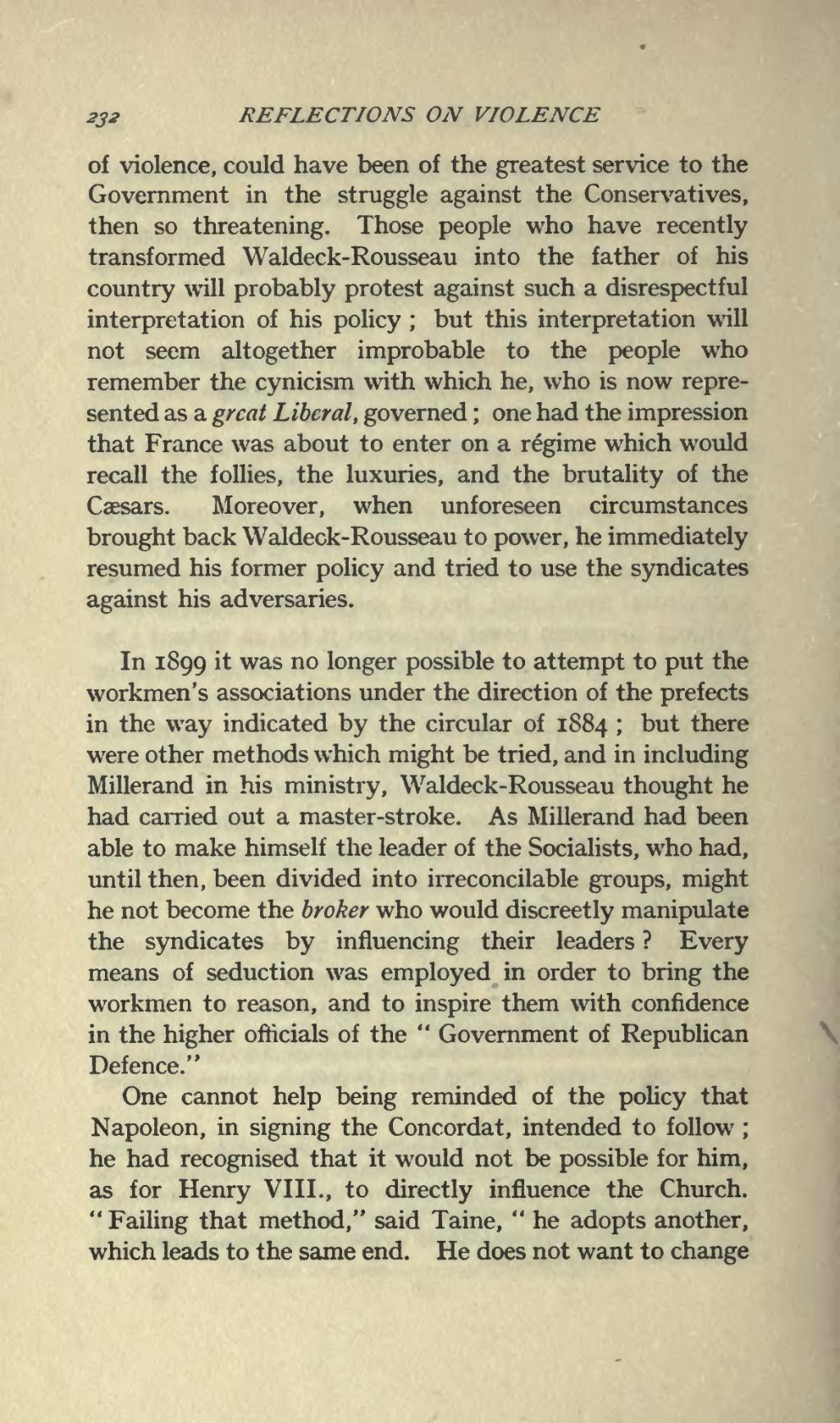of violence, could have been of the greatest service to the Government in the struggle against the Conservatives, then so threatening. Those people who have recently transformed Waldeck-Rousseau into the father of his country will probably protest against such a disrespectful interpretation of his policy; but this interpretation will not seem altogether improbable to the people who remember the cynicism with which he, who is now represented as a great Liberal, governed; one had the impression that France was about to enter on a régime which would recall the follies, the luxuries, and the brutality of the Cæsars. Moreover, when unforeseen circumstances brought back Waldeck-Rousseau to power, he immediately resumed his former policy and tried to use the syndicates against his adversaries.
In 1899 it was no longer possible to attempt to put the workmen's associations under the direction of the prefects in the way indicated by the circular of 1884; but there were other methods which might be tried, and in including Millerand in his ministry, Waldeck-Rousseau thought he had carried out a master-stroke. As Millerand had been able to make himself the leader of the Socialists, who had, until then, been divided into irreconcilable groups, might he not become the broker who would discreetly manipulate the syndicates by influencing their leaders? Every means of seduction was employed in order to bring the workmen to reason, and to inspire them with confidence in the higher officials of the "Government of Republican Defence."
One cannot help being reminded of the policy that Napoleon, in signing the Concordat, intended to follow; he had recognised that it would not be possible for him, as for Henry VIII., to directly influence the Church. "Failing that method," said Taine, "he adopts another, which leads to the same end. He does not want to change
